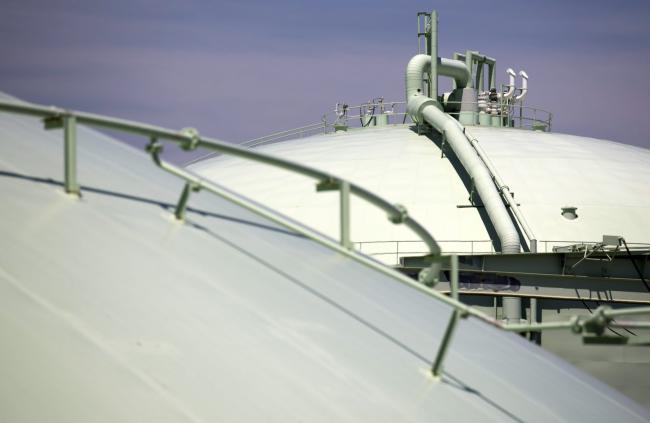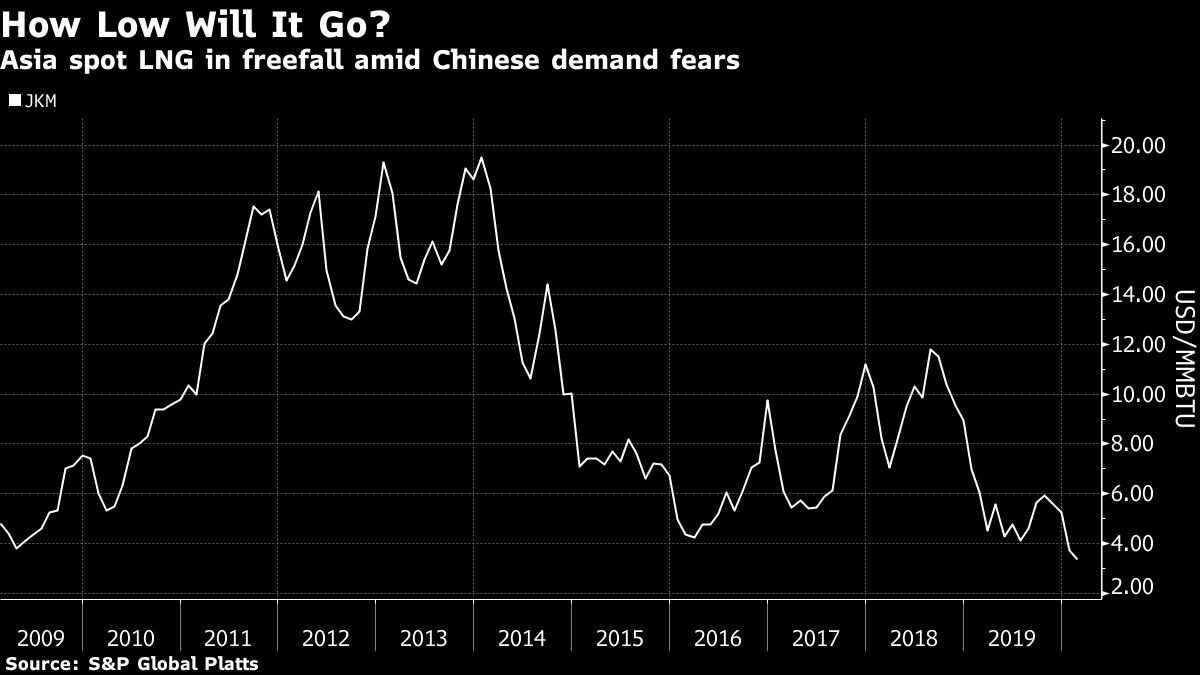(Bloomberg) -- China’s biggest buyer of liquefied natural gas told some suppliers it won’t take delivery of cargoes because of constraints caused by the coronavirus, a rare step that shows how deeply the epidemic is impacting global commodity flows.
China National Offshore Oil Corp. has declared force majeure on some contracts, according to people with knowledge of the situation, who asked not to be identified as the information isn’t public. Nobody answered several calls to the company, known as CNOOC, and its listed unit Cnooc Ltd. didn’t respond to a request for comment.
It’s among the first cases of a force majeure clause being invoked in the global commodity market as a result of the coronavirus after speculation mounted that Chinese buyers of everything from copper to LNG could be forced to take the dramatic step. It’s a sign of the deepening disruptions to flows of key raw materials as the virus curbs demand and constrains logistics.
CNOOC sent the force majeure notice to firms including Royal Dutch Shell PLC (AS:RDSa) and Total SA (PA:TOTF), according to the people, who said it covers prompt shipments.
China said last week that it would offer support to its companies that are seeking to declare force majeure on international contracts, referring to the situation when a company is unable to meet contractual obligations for reasons beyond its control.
Suppliers to CNOOC include the Woodside Petroleum Ltd.-operated North West Shelf LNG and Shell’s Queensland Curtis LNG projects, as well as Total, according to S&P Global Platts, which reported the force majeure earlier. Shell declined to comment. Woodside said it’s “closely monitoring for potential impacts on the market.” Total didn’t immediately respond to a request for comment.
The move will add further pressure on spot LNG prices in Asia, which are already trading at the lowest on record amid a supply glut and milder winter temperatures.
Elsewhere in China, the country’s largest oil and gas firm, PetroChina Co., was forced to delay discharge timings for multiple cargoes because it can’t get enough workers to its Rudong, Dalian and Caofeidian LNG terminals to run them at full capacity. The company hasn’t invoked force majeure because of the delays.

